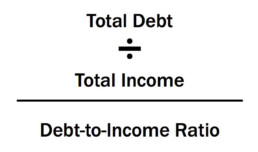Gifting a Home
Are you planning on gifting a home to someone this holiday season? For most people, a gift this generous is probably out of the question. But maybe you had a good year financially, and a family member needs the help. Whatever the case is, here are some guidelines when it comes to giving the gift of real estate.
Buying a new home outright
Instead of buying a new home outright, it may be wise to gift the cash for the home, NOT the home itself. Everyone has their own preferences when it comes to what they want in a home, so allowing the recipient of your generous gift to choose their home is probably a much safer idea.
We highly recommend running this by your accountant, as you may also need to file a gift tax return.
Gifting the down payment
Gifting money for a down payment works in pretty much the same way—except when it comes to the mortgage. If there’s even the slightest hint that the money is a loan rather than a gift, it can hinder the recipient’s ability to get a mortgage.
You’ll want to work closely with the recipient’s lender to file the appropriate paperwork, which will include a verified gift letter certifying the funds are a gift, not a loan. The lender will also likely need to examine your finances to determine if you’re able to gift. And remember, most lenders won’t permit gifts from nonfamily members.
Gifting an existing home
Would your children love to own the home they grew up in? Unfortunately this is a poor option, especially if both parents are still living.
One of the tricky struggles with gifting a home you own is the differential between the cost basis (what you first paid for the house) and the current fair market value—which could be hundreds of thousands of dollars, depending on how long you’ve owned it and the appreciation in the area.
This might not matter if your children plan to live in the home forever: The gift will be subject to your gift tax limit, and they’ll only pay capital gains tax if they sell. But if (and, likely, when) they sell, they’ll be stuck paying taxes on the difference.
If you’re determined to gift someone a home this holiday season, remember to keep these guidelines in mind. It IS possible, but of course it’s extremely important to consult your accountant and/or financial advisors to ensure it’s done in the right way.
Debt vs. Income: What You Need to Know
Income is a crucial component lenders consider when granting you a mortgage. However, income is not all that a lender will consider when determining how much you qualify for. They will also look at your debt to income ratio, in addition to other financial indicators.
If you make a lot of money but also have a lot of debt, this could be a red flag to lenders and reduce your borrowing capacity.
How debt & income affect your mortgage
Income and debt are yin and yang, opposites of each other. Debt is a liability, whereas the more income you have, the more power you have to make those liabilities go away. Having more income also gives more control of the following.
- It allows you to prepay your mortgage faster.
- It allows you to qualify for more when buying a home.
- It allows you to move into a shorter and more aggressive debt pay-down structure such as a 15-year fixed-rate mortgage.
- It allows you to pay off your credit cards in full every month, rather than paying unnecessary and pricey interest (assuming you’re making smart financial choices).
- It allows you to consume smart debt, such as purchasing a rental property that can generate even more income.
- It allows you to make investments, generating more income.
- It allows you to save and plan for the future.
Having this control over these and other financial choices is precisely why it is CRUCIAL to carry a debt-to-income ratio no bigger than 36% of your gross monthly income. The goal when borrowing mortgage money is to put yourself in a position where you can have a life beyond paying it off, while still saving and contributing to your retirement savings.
What you need to consider before you buy
Always remember it takes $2 of income to offset every $1 of debt for a 2:1 ratio for mortgage qualifying purposes.
If you want that fancy Mercedes at an $800 per month car payment, then you’ll need $19,200 a year in extra income or you’ll need to cut a current debt payment of $800 to balance your debt-to-income ratio.
If you want the dream house at $3,500 month, then aim your debt-to-income ratio at 36%—meaning you would ideally want income at $117,000 a year without carrying other consumer obligations in order to afford this mortgage.
When you are thinking about buying a home, also remember to consider what the future holds for your finances. For example, if your monthly expenses will likely increase in the future due to expenses like childcare costs or college tuition, this is something important to keep in mind. By keeping your debt to income ratio below 36% of your gross monthly income, you’ll put yourself in a position to enjoy your new home but also be able to continue saving for your future.
Why The Holidays are a Great Time to Refinance Your Mortgage
If you're a homeowner in Las Vegas and you want to lower your mortgage payment and/or consolidate your debt, then refinancing might be the right option for you!
So how does it Work?
Well, its not always that simple. There are many factors that determine if refinancing is right for you, such as interest rates and your current equity in your home. It also depends on what your current needs are. Do you want to lower your monthly payments and interest rate? Or do you want to cash out to consolidate your debt in time for the holiday season? There are different types of refinancing options to choose from.
 The traditional refinance option allows you to get a new mortgage with a different interest rate and terms. This could help you lower your monthly payment and start saving! Interest rates fluctuate, meaning they go up and down. So, there's a chance that you can get a lower rate on your mortgage and start saving money every month! Note that when you refinance your mortgage you are starting from the beginning of the set terms. For example, if you are 5 years into a 30 year mortgage and you choose to refinance to get a lower rate or payment, you will start at the beginning of the term of the new loan. So, your total finance charges may be higher over the life of the loan.
The traditional refinance option allows you to get a new mortgage with a different interest rate and terms. This could help you lower your monthly payment and start saving! Interest rates fluctuate, meaning they go up and down. So, there's a chance that you can get a lower rate on your mortgage and start saving money every month! Note that when you refinance your mortgage you are starting from the beginning of the set terms. For example, if you are 5 years into a 30 year mortgage and you choose to refinance to get a lower rate or payment, you will start at the beginning of the term of the new loan. So, your total finance charges may be higher over the life of the loan.
The other option is a cash-out refinance - This is where you refinance your mortgage for more than you currently owe, then pocket the difference. Sounds great, right? Well, there are many factors that go into the process of cash-out refinancing. For example, you will need to apply and submit various documents, get an appraisal on your home, and have a good standing with your current mortgage for the past 12 months. However, if you qualify, cashing out is a great way to consolidate your debt and put more money in your pocket during the holiday season! Please note that when you do a cash out refinance, you are not eliminating your debt. You are consolidating it through your mortgage and will pay it off through your monthly loan payment.
The good news is that the Las Vegas real estate market is booming! Interest rates are competitive, and home values are increasing. That means that the majority of home owners have equity in their homes. You could take advantage of the our refinance options and lower your monthly payments, in addition to "cashing out" the difference.
If you are a homeowner in Las Vegas and you would like to take advantage of our refinance opportunities this holiday season, give us a call at 702-331-8185!
5 Traits to Look for in a Realtor
Choosing the right real estate agent to help you buy or sell a home is no easy task! In fact, it can make all the difference in the world. The wrong agent can cost you time and money, and possibly even your potential dream home!
When you're interviewing potential agents, make sure they have these five qualities.
1. Remarkable Listener
The true to key to a good agent is how well they listen and retain what they heard. If you say your budget maximum is $250,000, then they should stick to within that price when providing properties to view. A good listener should quickly ascertain your needs and wants and have a plan of approach based on your criteria.
2. Great Communicator
No one wants an agent who lists a home and is rarely heard from again. You want an agent who is enthusiastically speaking to you often on what is happening in either the selling or buying process. Your agent should inform you about how she or he will deal with your transaction from start to finish. An agent who is in constant communication with you should also be in continual communication with all other parties in the transaction to keep you better apprised. The agent should return any texts, calls or emails as quickly as possible.
3. Amazingly Honest
Dishonesty breeds distrust. You want an agent whom you can always trust to be truthful and upfront throughout the entire sales process, even if the outcome is not easy to hear. An honest agent will price the property right at listing for a quick sale or inform the buyer of unseen issues with the home they are interested in. Having a trusted professional on your side means there is one less thing to worry about.
4. Incredibly Ethical
An agent who is also a Realtor suggests that a strict code of ethics will be adhered to throughout the transaction process. Abiding by the Realtor Code of Ethics means necessary transaction facts are not misrepresented or concealed, contract deals are completely spelled out in the writing, all people are treated equally and your best interests will be protected, among other code specifications.
5. Natural Negotiator
The best agents are natural negotiators, able to seal a deal with shrewd and aggressive bargaining skills. Excellent negotiators save you money and seal the deal faster. Ask a potential agent to describe their most difficult negotiation and what the outcome was or provide a difficult scenario and find out how that agent would handle it.
If you're buying or selling in the Las Vegas area and are looking for a good real estate agent, give me a call at 702.331.8185! I work with a lot of outstanding agents and will be happy to give you some referrals.
Unexpected Homebuying Roadblocks
Your offer has been accepted on your dream home and you have a down payment, good credit, and little debt. So the escrow process should be a breeze, right? WRONG! There are some surprising deal breakers that can quickly cause the transaction to go south. Here are a few of the most common ones.
Closing Lines of Credit
Maybe you’ve realized you have a few more credit cards than you’d like your lender to see. Time to shut ’em down before they check your credit, right? Not so fast. Closing down multiple accounts could actually ding your credit. Credit is composed of a few key components, the age of an opened account being one biggie. Shutting down multiple accounts will also lower your credit utilization rates, which can be yet another credit killer. Research the impact of any change to your credit before taking action.
Not Calculating the True Cost of your Mortgage Payment
The cost of homeownership goes far beyond a monthly mortgage check. There are HOA fees, maintenance costs, PMI, etc. Make sure you’ve calculated — and recalculated — whether the cumulative costs will be feasible. You don’t want a nasty surprise when you finally crunch your numbers and realize they don’t fit within your current financial circumstances.
Forgetting Maintenance Costs
Remember that you’ll have to spend much more time and money on the dream house with a pool in the backyard. If you simply don’t have the budget for a home with a pool, communicate this to your agent before you start looking at houses. The last thing you want is to end up falling in love with a home you simply can’t afford to maintain.
Assuming Fixtures are Part of the Deal
Make sure you and the seller agree on exactly what will be included — and what the seller will be taking to their new home sweet home. Things such as light fixtures are often assumed to be a part of the package, but if it’s an heirloom chandelier from the seller’s grandma, chances are they’ll consider it fair game to take when they go. Set out clear expectations of what’s staying and what’s going to avoid any confusion or upset.
Buying a home can be stressful, but with a little preparation (and the right lender and real estate agent) things can go relatively smoothly. No matter what happens, remember to stay flexible. Some things may arise that are out of your control. How you respond can ultimately sway the outcome — and hopefully get you the house of your dreams!
Why it is Good to Buy Now in Las Vegas
Are you wondering if now is the right time to buy in Las Vegas? Still on the fence or a bit unsure? Want
some more information before diving in? Here is some information to know before moving forward.
If you want to get in on the fun, now is a better time than ever. With today's shift towards a buyer's
market, buyers have more options to choose from and negotiate leverage. Because of this, you can find
your dream home without paying over market value, even less! Compared to previous situations of
bidding wars and over-asking, the moment is now to get in. Not to mention the constant increases in
value, you can find yourself making a substantial profit in the coming years.
Unlike renting, mortgage inflation doesn't go up, rent goes up, and the rent gets competitive. So, with less
competition than ever, you have a prime opportunity in your hands. The only question left is, to buy or
not to buy?
Derek Parent Q&A: High Rise Life
- Can you tell us a little bit about your background and how you got involved in the mortgage industry? I stepped into the mortgage industry in 1999 after running into an old friend at a boat show in Rhode Island. It had been a little while since I had seen him last, and there was just something about him that seemed different. We got to talking, and I found out that he was doing quite well for himself as a loan officer in the mortgage industry. I was so inspired, that every day for the following four weeks, I called into his office asking for an interview. I got the job, and just about a year later, I won a trip to Las Vegas based on my efforts. I was stunned. I went back home, grabbed my stuff, bought a one-way ticket back to Vegas and never looked back.
- What do you think has contributed to your success as an expert high-rise lender? Honestly, one of the reasons I became so intrigued with the high rise market was because of my own experience. When I purchased a condo for myself on the Las Vegas strip, I realized just how difficult it was to finance the high rise units. It was a nightmare, so when I closed, I made it my mission to solve the problem. It should not have been that difficult, and I wanted to make sure that I used every resource at my disposal to ensure that no one else had to go through the same thing.
- What do you love most about what you do? The one thing--beyond anything else--that has motivated me to be great at what I do is the satisfaction I get from helping my clients purchase their homes. Yes, there are other rewards in this business, but there is nothing that affects the way I sleep like knowing that I have a small hand in such a large part of my clients’ lives.
- What are some of the core values that the Parent Team carries? No business is sustainable without a strong foundation, and our core values are insanely important to the way we run our business and the way we treat our people. Specifically, we the core values that we live by: honesty, integrity, communication, client-focus and consistency. These qualities are what keep us motivated and grounded as we deal with our success and our frustrations, and they are the reason we have been able to maintain our quality of business over the years.
- You have a growing list of over 125 condo projects available for financing. Can you elaborate on this? The reason that growing list is so important is because our definition of ‘approval’ is so much deeper than most other sources. We do our due diligence in advance rather than during the transaction, which negates a lot of frustration and fall out with the client. One measure that we really look at is having a completed questionnaire and analysis of the condo project before we list it as ‘approved’. In the lending world, the condo questionnaire is a vital piece to knowing whether or not a condo can be financed, and because we do it in advance, the client is able to have full confidence in their purchase.
- What are some of the great promotional offers you currently have for those looking to purchase a high-rise condominium? The most important thing we have right now is that the buyer does not have to pay for their condo questionnaire, which is anywhere from about $200 to $500. Generally, it’s a cost that lenders require the buyer to pay for just to obtain information about the project for the lender. If for some reason the questionnaire details information that does not allow the lender to lend on the property, the buyer loses that money. We take that responsibility off of the buyer because we have already obtained the information from the condo project. Another great offer is that we allow buyers to purchase with only 5% down payment for their principal residence, and for second homes, we only require 10% down. We also provide an option for 10% down payment on jumbo loans.
- What are some essential points homebuyers should address when shopping for a loan? In the high-rise market, the number one thing that buyers should be aware of is if the lender requires them to pay for a condo questionnaire. If the lender is not confident enough to pay for it, there is a large possibility that they cannot finance the condo, and again, if that’s the case, the client will not be refunded and absorbs the cost. Other than that, I would say communication from your loan officer is the second most important factor. It not only makes the process easy, but it ensures your ability to get an offer accepted on the home you want because it gives the real estate agents confidence that the transaction will be smooth and close on time.
- Any exciting new developments with the Parent Team that you would like to share with us? For us, it really starts with our people; we bring on team members that not only bring a lot of value but also add amazing energy. Just recently, we brought on a business development specialist who is dedicated to growing our footprint and building new professional relationships, and we are extremely excited to see what it does for our growth. It has the potential to really extend our reach and allow us the opportunity to help more people accomplish the goal of home ownership.
How Does Divorce Affect Mortgage Borrowing
Let’s face it: getting a mortgage can be a royal pain in the ass regardless of whether or not you’re recently divorced. Unfortunately, adding a divorce to the picture makes it even more difficult, although not impossible. Here are some things to consider:
What to plan for: By providing your mortgage company with the most accurate and true picture of your circumstances — starting with the loan application — you’re helping them to find the best way to structure your loan for a favorable credit decision. The lender will also look at your divorce decree for any other undisclosed/non-credit report financial obligations such as child support, alimony/spousal support paid or received.
If you receive income in the form of child support or alimony: This income can be used for qualifying for the mortgage, so long as there is a six-month history and the income will continue for the next three years, determined by child support or an alimony agreement detailing the terms of the obligation for the party paying the debt.
If you pay alimony or child support: This reduce your borrowing ability as debts reduce income, and income is needed to offset a mortgage payment.
If you are divorced even as long as 20 years ago: Unfortunately, there is no statute of limitations on mortgage loan underwriting. The full divorce decree will be required no matter how many years you have been divorced.
If you own a house and are on a mortgage with an ex-spouse: As long as the divorce decree awards the other party with the home, and the other party is willing to provide supporting evidence that they make the mortgage payments on that home — by providing 12 months of bank statements and/or canceled checks — the total mortgage payment on that home can be omitted from the decision-making process on your new mortgage, which can improve your ability to qualify.
If you and your ex make the mortgage payment from the same joint bank account and the divorce decree awarded the other party with the property: You are both 50-50 responsible because the money is “co-mingled” funds from the same place to pay the obligation. There is no way to support your position that one person is responsible for making the payment because it’s coming from a joint account.
If the ex-spouse is responsible for making the mortgage that you are also on: Explore the possibility of having the ex-spouse refinance you off the mortgage obligation.
If your ex-spouse is refinancing you off a mortgage loan: A final closing statement called an HUD could be required by the lender you’re working with for procuring your loan to omit the payment from the other house.
If you have a joint consumer credit such as credit cards, installment loans, auto loans or even student loans: Unless you can prove the other party is for responsible for the credit obligation (with 12 months of canceled checks or bank statements), those liabilities will be factored into your ability to qualify.
Tips If You’re Not Yet Divorced
It’s so important to create a marital settlement agreement prior to being divorced. This is a precursor to getting a divorce that could be a great asset in helping you qualify for home financing. Navigating the financial questions that inevitably come up during the separation or divorce can easily be taken care of by having a clear delineation in writing on whose property is whose.
Consumers planning a divorce in the future would also benefit by separating their finances. This means having separate bank accounts, and paying any obligations from these separate accounts. If you are trying to get a mortgage, or will be trying to get a mortgage, consider having a conversation with mortgage professional upfront, who can guide you through the complexities in the underwriting process during a divorce.
How to Choose Between a 30-Year & 15-Year Mortgage
Buying a home is a huge financial decision, and choosing the right mortgage can be difficult. If you're wondering whether to choose a 15-year mortgage or 30-year mortgage, here are 4 things to consider.
1) Can You Afford to Get a 15-Year Mortgage?
Although a 15-year mortgage offers a lower interest rate relative to a 30-year mortgage, thereby allowing borrowers to pay interest for only half as long, a 15-year mortgage comes with a higher total monthly payment. This is because the principal loan amount must be paid off faster, making each principal payment larger.
If you can afford the higher monthly payment associated with a 15-year mortgage, it might be worth considering.
2) Are You Buying Your First Home?
First-time home buyers often benefit from selecting a 30-year mortgage because the monthly payments are lower. A longer-term mortgage can make a more expensive home more affordable for a new buyer.
Of course, 15-year and 30-year mortgages are not the only options available to consumers. Borrowers can take an adjustable-rate mortgage, which offers a low initial rate that stays unchanged for some period, such as five years. When the period expires, borrowers could pay more if interest rates rise. But for buyers who are not looking to own their home for too long and who are confident that they will be able to resell the home, an adjustable rate mortgage may be a sensible option.
3) Are You Planning on Retiring Soon?
How close a borrower is to retiring plays a major role in whether to take out a 15-year mortgage. Typically, borrowers who take 15-year mortgages are at least 40 years old. These borrowers are often willing to pay off the balance on their mortgages faster in order to retire with little or no outstanding debt on their homes. However, many older homeowners also must weigh prepayment — making early payments on their mortgage — against the need to save for retirement.
4) Do You Have a Strict Savings Plan?
Choosing a 15-year mortgage over a 30-year mortgage also may be a worthwhile choice if you are not a disciplined saver. But many people may lack the discipline needed to save long-term, especially in amounts that would offset what they would save by switching to a 15-year mortgage.
If you're wondering which is right for you, contact my office at 702.331.8185 and one of my team members will be happy to assist you.
Tips For First Time Home Buyers
There’s probably hundreds of articles on the internet that are full of useful tips for first-time home buyers. Since our team has been exposed to thousands of loan transactions, we want to give you our expertise and personal advice. The more prepared you are, the smoother the process will be. We love helping our clients achieve their dreams of homeownership!
Check Your Credit Not only does your credit score matter, but your credit history is just as important. It’s not impossible to purchase a home with less-than-perfect credit, but it will be more expensive. In most cases, the lower your credit score is, the higher your mortgage interest rate will be. You also want to be mindful of your debt-to-income ratio, which is your total monthly debts divided by your gross monthly income. If you have substantial credit card debt, your debt-to-income ratio will likely be too high to qualify for a mortgage. Try to keep your debt-to-income ratio equal to or less than 43%.
Apply Now Before House Hunting Many hopeful buyers skip out on this crucial step and find themselves disappointed that they can’t qualify for a home that they fell in love with. Not to mention, you may qualify for more house than you think. You may be shopping for a house in the mid $200Ks range, when you can qualify for a home in the upper $300Ks.
Save Your Money! This seems like an obvious tip, but becoming a homeowner can get expensive. Don’t be discouraged! Just be sure to budget yourself and set enough money aside for your down payment, closing costs, and of course, furnishing your new home. Down payment options start as low as 3.5%, so you no longer have to make a 20% down payment to buy a house.








